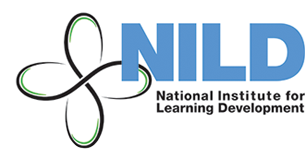Ready to schedule a tour of our beautiful campus to see what Northland has to offer?
Call us: 281-440-1060
Email us: admissions@northlandchristian.org

The Cougar Learning Center for Success (CLCS) is an expanding department within our school, dedicated to meeting the needs of families and supporting each child’s growth and academic success. We strive to provide support at every stage of learning, including early intervention programs like Search & Teach to help prevent learning failure in younger students. To achieve this mission, the CLCS offers two key resources: Academic Support Services (Accommodations) and NILD Educational Therapy. Both services are based on formal educational testing.
Rooted in the principles of the National Institute for Learning Development (NILD), the CLCS provides a dedicated, supportive environment where students receive both learning and testing accommodations. With ongoing academic monitoring, our director, and center coordinator collaborate closely with classroom teachers to schedule students as needed for assignments or tests requiring accommodations. This coordinated effort ensures each student receives the right support at the right time.
Educational Therapy: Educational Therapy is a personalized, one-on-one intervention program designed to target the root causes of learning difficulties. Our NILD-trained Ed-therapists carefully review each student’s formal educational tests results and develop customized therapy sessions to address each student’s unique needs. The goal is to empower students to see themselves as capable, confident learners—equipped to overcome cognitive challenges and build on their strengths for success in the classroom and beyond.
Search & Teach: For our youngest learners (K-1st), we incorporate the Search & Teach program as an essential part of our early intervention strategy, focusing on identifying and strengthening foundational skills before potential learning difficulties escalate.
Entrance Requirements & Fees: Admission to the CLCS programs requires formal educational testing, unless previously completed by preferred providers, that includes additional fees. Students should have a diagnosed or suspected learning deficit, cognitive processing disorder, or other academic struggles that impact their ability to acquire, retain, or apply knowledge effectively. Due to the individualized nature of educational therapy, space is limited. Once the program reaches capacity, a waiting list will be maintained.
Your child may be eligible for support through the Cougar Learning Center for Success (CLCS) if they have recommended accommodations based on prior psycho-educational testing. Additionally, access to CLCS services may be appropriate if a teacher, principal, or school counselor has academic concerns and recommends further evaluation.
Academic accommodations are adjustments or supports put in place to help students with documented learning differences access the curriculum and demonstrate their knowledge more effectively. These accommodations are not designed to alter what students learn, but rather how they learn and show what they know.
At our school, accommodations are based on a student’s individual learning needs, as determined through formal psycho-educational testing. This evaluation helps identify specific areas where support is needed, such as attention, processing speed, reading, writing, or executive functioning.
Common academic accommodations may include:
While many schools refer to these supports under a “504 Plan,” our school provides Academic Accommodations through a personalized support framework coordinated by the Cougar Learning Center for Success. The accommodations are formally documented and reviewed regularly to ensure they are meeting the student’s needs. Our staff works closely with teachers and families to monitor progress and adjust accommodations as appropriate
Academic accommodations are determined through formal psycho-educational testing conducted by an approved outside agency or licensed diagnostician. Northland Christian School does not administer these evaluations or provide diagnoses. For guidance on approved testing providers, please contact the Cougar Learning Center for Success directly at (281) 587-6439.
Once testing is completed, our team will review the results, recommend appropriate accommodations, and develop an individualized accommodation plan. This plan is created in collaboration with parents, principals, counselors, and classroom teachers to ensure a shared understanding of the student’s needs and how they will be supported.
National Institute of Learning Development (NILD) educational therapy is an individualized approach designed to address the underlying cognitive processes that contribute to learning difficulties. NILD focuses on developing clear, efficient thinking through targeted cognitive interventions that are research-based and proven to be effective in improving outcomes. Students are given tools to enable them to overcome specific learning weaknesses or academic challenges. Each therapy session is tailored to the specific needs of the student. Tutoring typically focuses on content, while educational therapy builds efficient learning processes.
The goal of NILD therapy is not just short-term improvement, but long-term gains in academic performance, self-confidence, and independence in learning. Through NILD therapy, the students learn to:
An NILD Educational Therapist is a highly trained professional who works with students who struggle to learn through traditional methods. Using research-based techniques developed by the National Institute for Learning Development (NILD), the Educational therapist helps students build the thinking skills necessary for long-term academic success, increased self-confidence, and greater independence in learning.
Therapy sessions occur in a one-on-one setting and are designed to strengthen the underlying cognitive functions that support learning. Educational therapists are equipped to assess individual learning needs and create targeted therapy plans based on the student’s specific challenges and goals, based on prior psycho-educational testing. Educational therapists individualize intervention by:
